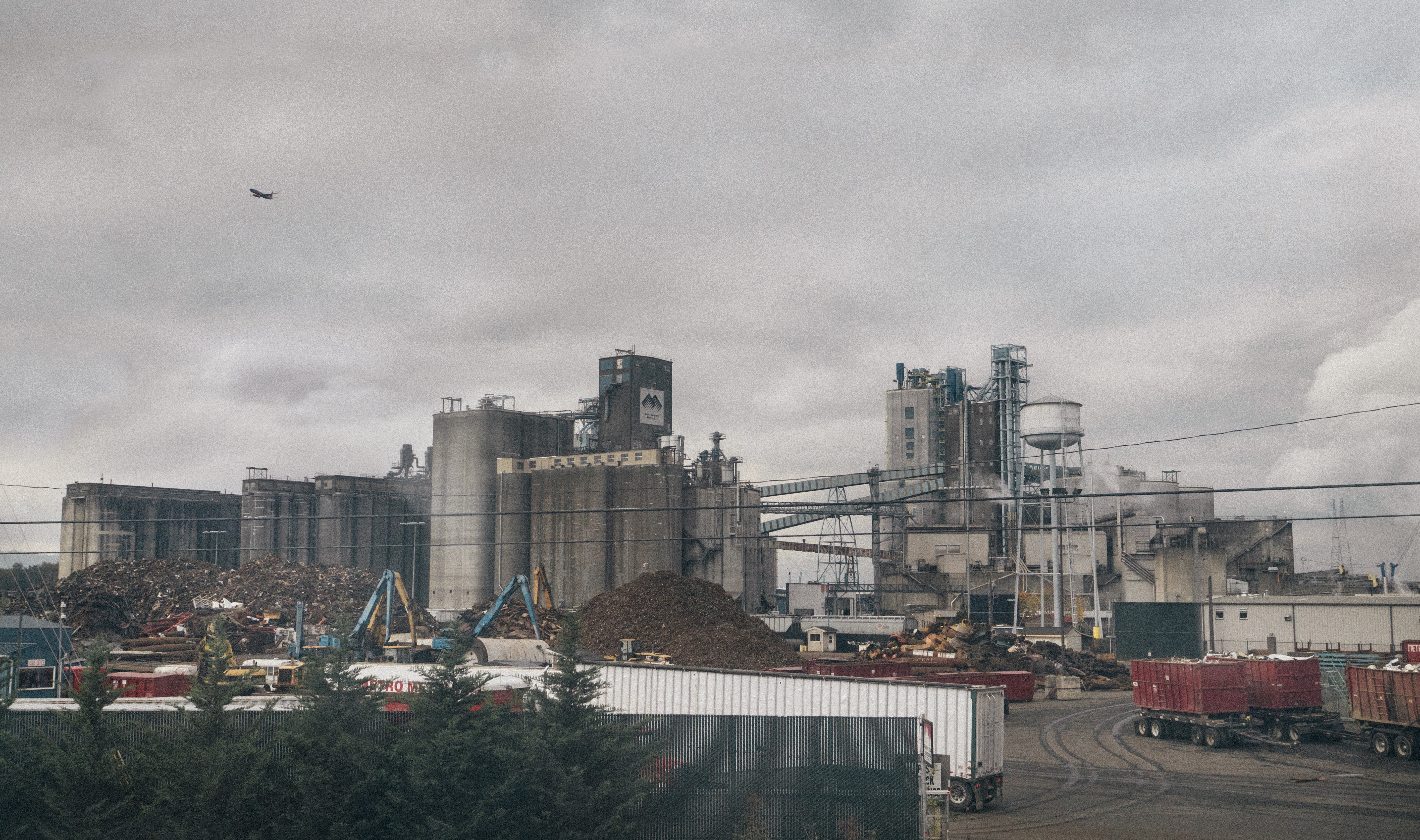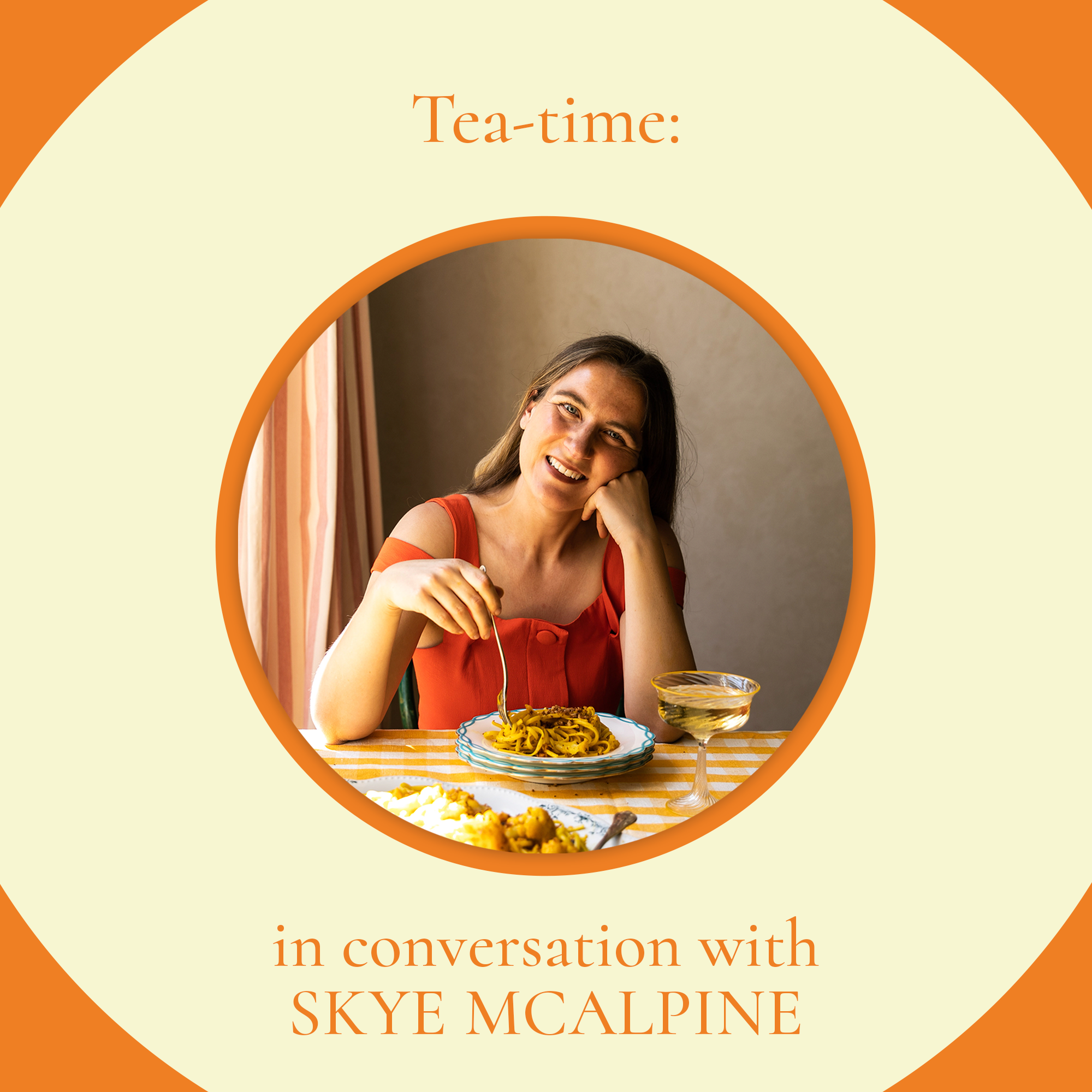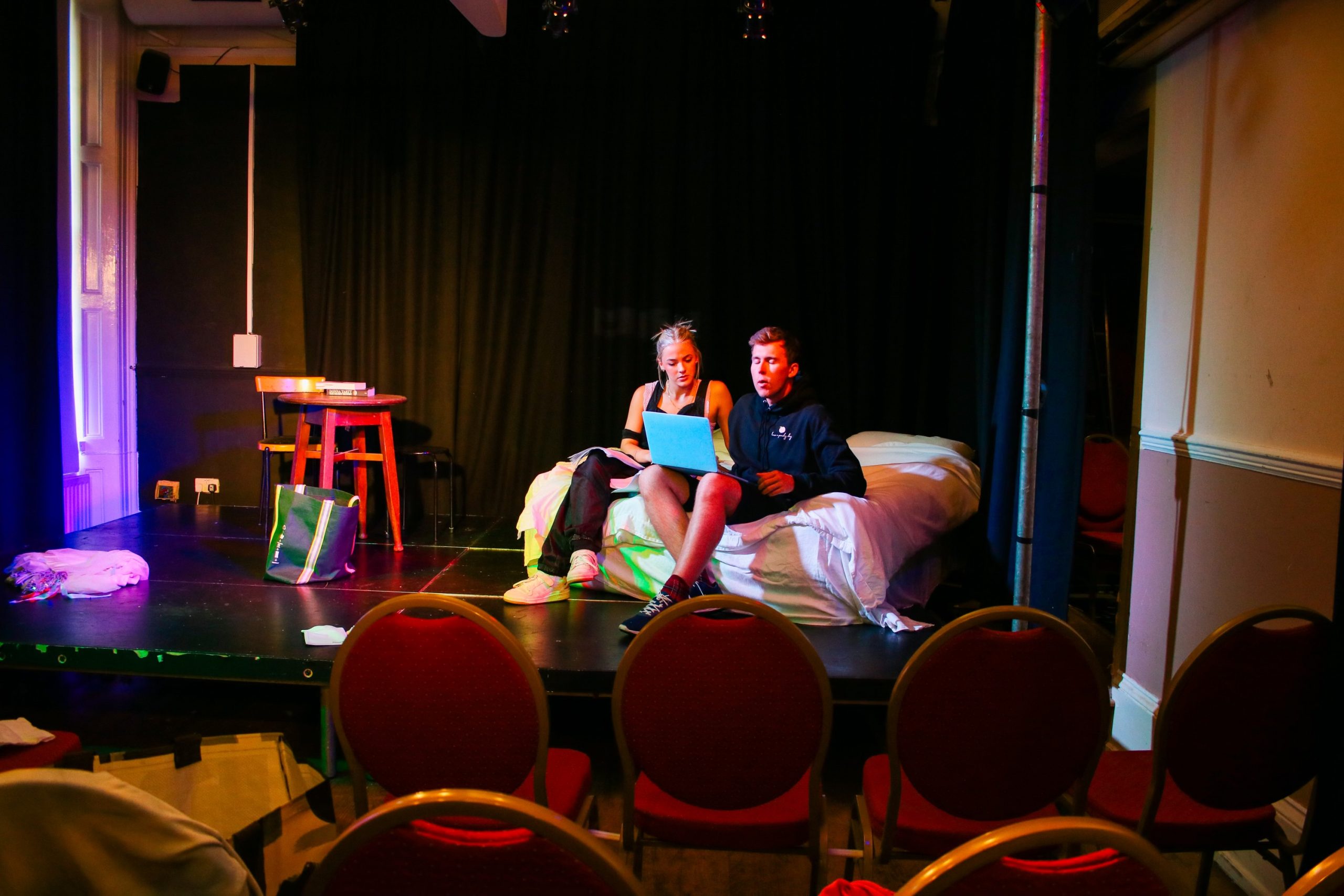Icon of the Week: Oliver Sworder
Oliver Sworder is a third-year biologist at Keble. He’s a campaigner with Just Stop Oil.
What is your role with Just Stop Oil?
So, I’m the local uni coordinator. I’m sort of making sure everything actually happens behind the scenes.
How did you start working with them?
I met Daniel Knorr, now a rather famous Just Stop Oil activist known for spraying the Rad Cam orange and for being carried off by Johnny Bairstow from the Lord’s Cricket Ground. In June, he was like: “Oh, by the way, we’ve got, like, a small student group, and we’re all gonna march.” And I thought: “Actually, what have I got to lose at this point?” For a while I was actually seeing mental health professionals because like, I was being told by the most informed people in the world that there is no world, basically.
It felt like maybe, whatever Just Stop Oil is doing might work. I went along, and I was just inspired by the people there. In the big Extinction Rebellion-style marches, there’s like ten thousand people in London, and you feel like you’re one in a, you know, ten thousand, who might make a difference. But being on your own marching through London as like a group of five or twenty, you really feel like you, yourself, are having an impact, which was quite powerful for me.
I was very quickly pushed up the ladder into where I am now, which is trying to mobilise students here.
Was there anyone who particularly inspired you?
I was initially inspired by Greta Thunberg. Then she sort of disappeared, and she’s come back now and got arrested several times, which just shows how quickly young people can go from thinking that protesting is enough to realising they have to put their bodies on the line.
Can we talk about the Rad Cam?
I think a lot of people might be questioning why we did what we did with the Rad Cam. A lot of people have questions about our tactics. What we’re doing with regards to orange paint is partly to raise public awareness. Obviously, it’s one of the main things that got us to become a movement that everyone understands. You know, you see a picture of orange paint and you’re like: “Oh, that’s environmentalists, is it?” It’s meant we’ve been talking about climate change this summer, continuously. Whereas, we probably wouldn’t have otherwise.
Why universities?
Universities, because, for example, this university hosted three major fossil fuel companies at its finance and careers fairs. Despite this university publishing some of the top climate science in the world, we’re still taking money from companies like Equinor and Ineos. They’re funding the Life and Mind building. The new biology building is built on fossil fuel money. It’s clear that these universities need to act like [it is] the emergency they are saying it is.
Do you worry about these being old, listed buildings?
I mean, all of these paints are relatively permanent, but they get power washed off easily. It was riskier with this because it was a sandstone building as opposed to the glass that a lot of the other university targets were, but it was gone within 36 hours. People say: “You’ve absolutely desecrated this building!”, but the fact is it was gone by the end of the next day. So, no.
What about slow marching?
With regards to [the protest tactic of] slow marching: at this point, it’s a small number of people getting disrupted for a few minutes, because the police get there so fast. And for a few days of the year. It’s minimal if you look at the bigger picture. We also do let ambulances through: that’s a misconception. If we see the blue lights we will move the whole march off or create a bus lane space for any buses and emergency vehicles to get through.
So what is going to happen to Daniel [Knorr, who allegedly sprayed the Rad Cam]?
I don’t know. And the University I don’t think knows at this point. No one seems to know, because I think the universities are under pressure not to expel them. If they expel a student for pointing out that they are still hand in hand with the fossil fuel industry, that’s an incredibly bad look for them. I don’t think they want that. At the same time, they can’t do nothing. So, I really don’t know what’s going to happen. Legally, I imagine he’s going have to pay a large fine for the cleanup charges.
What would you say, concretely, are your goals?
The single goal for Just Stop Oil is end the licensing, exploration, and consent for all new oil, gas, and coal licenses. That is to say, no new fossil fuels. We can argue about how we’re going to get to net zero, in whatever way we want: “Is nuclear a part?”, “Is renewables a part?” – whatever. The issue is, we’re currently still making it worse by making new fossil fuels. We have to stop them before we can even think about moving to net zero. So that’s what the goal is: to stop these hundred new oil and gas licenses.
Do you feel you take legal and social risks when you do this?
Yeah, yeah, absolutely. Because I’ve so far yet to be arrested. And that is going to change at some point. This November, I’m going to be arrested as part of, hopefully, thousands of students and thousands of adults.
I know police are now starting to crack down on the movement a bit. For example, yesterday, co-founders Roger Hallam and Indigo [Rumbelow] were both arrested and raided at 6 am over just giving a talk a few weeks ago. Which is a little bit concerning, because that means: “Oh, goodness, police can arrest me just for giving a talk these days.”
But I know that, frankly, I’m not going to look back in 20 years and wish I’d done less. My grandfather was a policeman, so I’ve been raised to think arrest only happens to bad people: people that are stealing or doing all these bad things. But it’s become clear that actually [that was wrong]. I’ve almost been arrested three times, and all three times I was faced with a policeman in my face saying: “Move or you will be arrested.” And that was just because I was walking on a road. It’s clear that at this point, you can be a perfectly good person and get arrested for something absolutely tiny. I don’t have plans to do some of the high-risk things like spraying at the university. But I know that the least I can do is incur a hundred pound fine and a night in a cell.
Can you talk a bit about what you’re going to do in November?
Essentially, the plan is that there are going to be three weeks of marching. We know that police will be at your feet within moments saying: “Get off the road, or we will arrest you under Section 12 of the Public Order Act.” We will just say no, and they will carry us off. Many of us might go floppy or things like that, just to take up more time. There are very few police cells in London, and there are very many of us. As we’ve seen in the Netherlands, if there are enough of you that are getting arrested, the police can’t arrest you all. As a result, the government have no power except to negotiate with you. That’s what our goal is: we are going to overwhelm the Met police. As a result, the government will be forced to negotiate and, hopefully, end the hundred new oil and gas licenses that they’ve just issued.
Obviously, there are lots of movements related to climate change. What makes Just Stop Oil different? Why this affiliation for you?
At the moment they just have the public consciousness. There’s, I think, 95% name recognition among the British public. So, if you say to someone: “Do you know who Just Stop Oil are?” The chances are, they will say: “Yes” and have some kind of opinion. It’s clear that this is the movement of 2023. It has the numbers and public consciousness for it to work and to make a big enough change.
What we’re facing is so catastrophic and so imminent, that nothing less than something radical is going to avert what amounts to hundreds of millions of people dying in our lifetime. Previously, I’ve been involved in [less radical movements]. But now I just see that those things were what should have been done in 1970. Or, you know, when my parents were kids. And they didn’t do it. As a result, it’s up to us to do something far bigger, because nothing less is going to do anything.
If you were talking to the average Oxford University student who knows that global warming is happening, doesn’t know a lot about what that means, and isn’t involved in activism, what would you say to that person?
Firstly, we know it’s bad right now. We’ve seen what happened in Europe this last summer with heat waves, causing what will be tens of thousands of deaths, when the final figures are published. We saw India this year hit a 50-degree heat wave for weeks, just as they did last summer. That is the sort of temperature where you can’t move at all. Every summer, I’m like: “Oh shit is this where we are now?” Like, consistently, what we’re seeing is worse than anyone predicts for the next year. And that’s terrifying.
There was a recent paper published in Nature by Lenten et al., which found that within ten years over a billion people will be living in places that are actually too hot to consistently live. Which is to say there are going to be a billion people who are forced to migrate, or who will die. By 2100, we might see this be two or three billion; the worst cases, it’s half of humanity. So, in our lifetimes, and in fact, very soon, we are going to see massive migration. Entire countries like Nigeria, India, and Pakistan, are going to become uninhabitably hot.
But also know the people in power have no interest in making this stop, it would appear. Right now, there are over 195 projects that will lock us into well above +2.7 degrees, which means billions of refugees and massive suffering each year. These are projects such as the Rosebank oil field, which is the biggest oil field that we’ve ever decided to make. It’s not even been built yet, and it’s going to be hideous. They’re in the planning phase now, then they’ll be building for like 10 years, and then start drilling in the 2030s. Until, like, 2070. It’s clear that right now, nothing is going to change the way things are going, and our lives are going to become hell.
I think the problem we have with these things is we don’t engage on an emotional level. I know that potentially this could happen to me, and in fact, is happening to millions of people. I need to actually allow myself to feel what it is. Imagine what it’s like to be a refugee. Imagine what it’s like to lose everything: to lose your loved ones, to be forced to migrate, to suffer under these heat stresses. It’s one thing to hear “it’s going to be bad”, but it’s another to actually connect with that. I think that’s really important for a lot of people to do.
What would you say to someone who said: “That’s really bleak. That seems very powerful and difficult to change. What can I do? What does what you’re doing do?”
It is bleak. I completely understand that. That means that we have to do something. Firstly, because it’s that bad.
We’re in an absolutely pivotal moment in human history, just like it was when women were first earning the vote or [at the time of] the liberation movement in India. We’re in one of these moments of history, and things are going to start changing fast. I want to say I was part of that.
The strategy of Just Stop Oil is taken from the history books. For instance, what we’re doing this November is taken directly from the civil rights movement in Birmingham, Alabama. What happened there was there were thousands of arrests, of mainly young people. That led to an absolute public outrage, which led to the desegregation of one of the most racist cities in America. That sparked the Civil Rights movement. We’re also taking tactics from recent history, we’ve seen it work with Extinction Rebellion in 2019. It worked with the Netherlands just now. We know that what we’re doing could work if people come along and make it work. We just need the numbers.
Climate conservation is obviously a ‘conservative’ goal. Why do you think that it doesn’t resonate with the Conservative Party in England?
It appears to be resonating with a large amount of them. I think, right now, what we’re seeing is a wing of the party that is in government that are just anti-science and anti-common-decency, who just have these extreme, unfounded thoughts on what the world is. Even within the party, there are a lot of Conservatives right now that are saying: “We actually need to be reaching net zero sooner.” It’s clear it’s not a political issue. The fact of the matter is, everyone supports no new oil and gas.
So, if you have a simple, concrete goal that most of the British public agrees with, and in fact, most of the British Parliament agrees with, what’s standing in the way of achieving it?
Simply our strange democracy where there’s a very small amount of people that have an extremely large amount of power. Also the fact that those people are being paid large sums by the fossil fuel industries is to keep them [the industries] alive. What Just Stop Oil are going to do this November is not just show [the government] that the public oppose it, but to actually force them to come to terms. It’s clear that this government don’t care about the majority opinion. So, we’re going to bring them to the table, whether they like it or not.
You were talking about how understanding the climate crisis is an exercise in future, almost theoretical, empathy. Is there any particular image that helps you to relate to it?
It’s tricky. I guess it will be different for everyone. For me, I’m a biologist and so I tend to just love the world around me. It doesn’t work for everyone, but for me, I can just see that nature is collapsing. It is heartbreaking to me to know that the thing I love will not be shared by my children. I do what I do out of love. I see the people I love in my life – my family, my friends – and I know that what I need to do is to help all of us. It’s tricky one. Everyone is going to have their own thing that spurs them on.
Thank you so much!∎







